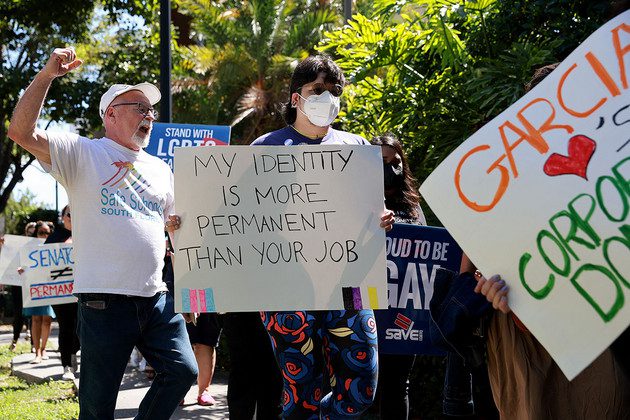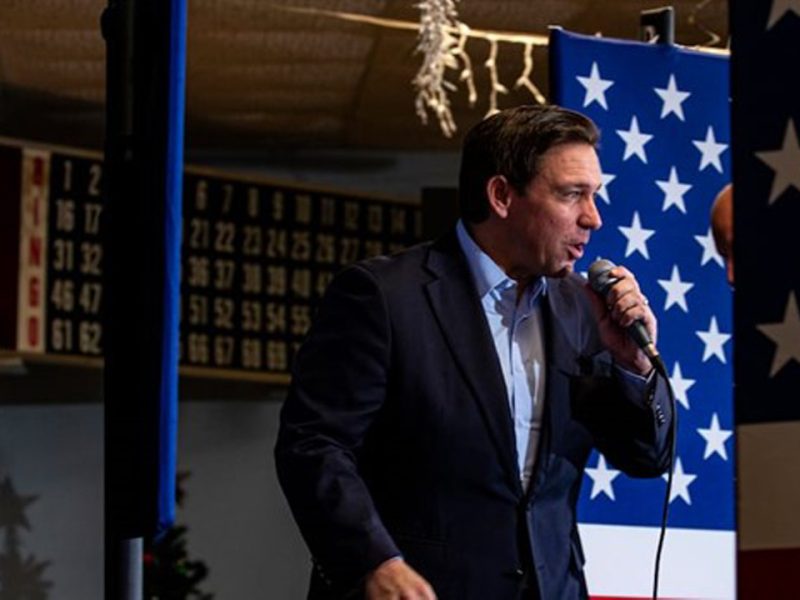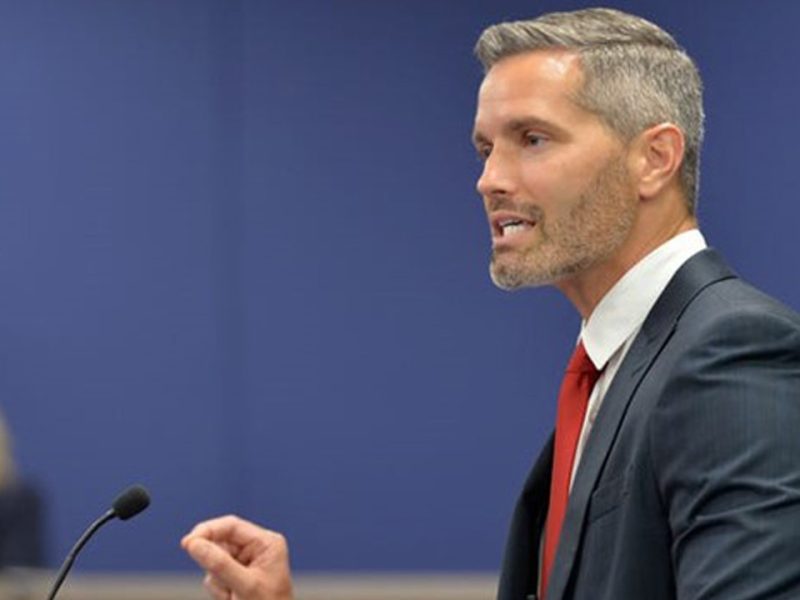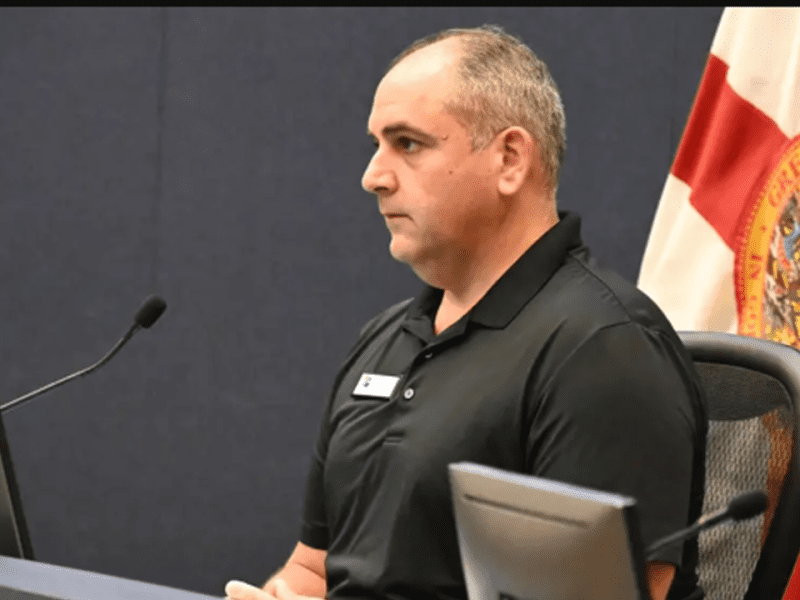
National conservative groups pour money into local school board races
The New York-based 1776 Project PAC endorsed more than 100 school board
candidates this year in states like Florida, Texas, Virginia and Pennsylvania.
Politico | By Andrew Atterbury | September 19, 2022
TALLAHASSEE, Fla. — A commercial that aired in Florida ahead of its August primary opened with a drag queen reading to children. Designed to attack a candidate for school board, the ad issued warnings about Democrats “indoctrinating” students and “teaching trans-ideology and anti-American critical race theory.”
The spot didn’t come from another candidate running for the board in Central Florida. It wasn’t even paid for by a group from within the state. It was the American Principles Project’s first foray into a local school-focused race hundreds of miles from the super PAC’s headquarters in Arlington, Va.
“If you don’t have people at the local level who are cutting this out at schools, you’re not going to get that out,” APP president Terry Schilling said of the materials about race and gender in an interview.
American Principles Project endorsed four local candidates, building them up as champions of parental rights in what ended up being a “test case” for the Schilling’s group, which is typically active on congressional races.
The American Principles Project wasn’t the only group from outside the state to pour money this summer into ads focused on school board races. What had traditionally been local contests are now the latest targets for a handful of national conservative groups with backing from a GOP megadonor seeking to shape how potentially difficult discussions on race and gender identity happen — or don’t — in classrooms across the country.
The money, attack ads and mobilization effort going into school board races — from some groups with no geographic ties to local candidates — underscore how education has become one of the prime issues conservatives are increasingly directing their resources in the 2022 election cycle and beyond. While many parents were energized to get more involved in their child’s education during the pandemic, how students are taught about race and sexuality is now galvanizing conservatives to become more involved in school boards, which can have a significant influence shaping curriculum in some states.
In one of the most sweeping examples, the New York-based 1776 Project PAC endorsed more than 100 school board candidates this year in states like Florida, Texas, Virginia and Pennsylvania — and put significant cash into helping them get elected. With financial backing from a group with ties to GOP megadonor and billionaire Richard Uihlein, 1776 Project PAC is putting money behind candidates who oppose critical race theory.
“I was trying to target Republicans that would normally vote in the midterm, but not necessarily in primary, and encourage them to vote for conservative school board members,” 1776 Project PAC founder Ryan Girdusky said in an interview about the PAC’s efforts in Florida. “It was a shit-ton of work.”
Critical race theory is an analytical framework originally developed by legal scholars examining how race and racism have become ingrained in American law and institutions since slavery and Jim Crow. But the term quickly became a catch-all phrase among conservatives critical of how race and social issues are being taught in the K-12 education system. Most public school officials across the country say they do not teach the theory, even in districts where lawmakers are seeking to ban it.
In Florida, GOP Gov. Ron DeSantis and state conservatives — and Democrats to an extent — contributed thousands of dollars into campaign donations and offered up political endorsements during the midterms to help score school board seats. But these clashes were also shaped by advertisements produced by political committees with a variety of different backers, from environmental companies to Big Sugar to billionaire megadonors like Uihlein.
The 1776 PAC, which asks anyone who visit its website to report local cases of critical race theory in schools, endorsed 49 candidates in Florida throughout 21 counties — more than even DeSantis. Of those endorsements, 19 of the candidates were endorsed by both the Republican governor and the PAC. 1776 spent approximately $400,000 combined in mailings, text messages and other election messaging throughout Florida, Girdusky said.
While Florida schools don’t teach critical race theory, state conservatives led by DeSantis are combing through education for any traces of “woke” content, which they consider to be instruction about concepts such as “white privilege.”
1776 sent out mailers for its endorsed candidates including Bridget Ziegler in Sarasota County, who is married to the vice chair of Florida’s Republican Party and was endorsed by DeSantis.

One of the group’s ads for Ziegler said that election day was a chance to “keep Florida schools free.” There is photo of DeSantis giving a thumbs up on the back, declaring that Ziegler will encourage parental involvement, stop critical race theory, remove pornographic materials from libraries and eliminate discussion about transgender people from classrooms.
Some conservatives have pushed for restrictions on transgender students, including athletes, and say children are too young to discuss about gender identity. Democrats and some school officials, however, have fought against such measures, including Florida’s law that bars teachers from leading classroom instruction on sexual orientation and gender identity, known by opponents as “Don’t Say Gay.”
Ziegler was one of the 35 candidates endorsed by 1776 that won their elections outright last month.
Since the group’s “resounding victories” in Florida, the group is getting attention from the likes of popular conservatives including Ben Shapiro and more than 300 new school board candidates have reportedly applied for endorsements.
“I’m very conscious of the image of the PAC and the reputation,” Girdusky said. “I don’t want it to seem like we’re supporting just any Republican.”
1776 is backed by a variety of donors, including scores of individual contributions from across the country. It also received a $900,000 donation from Restoration PAC, funded heavily by megadonor Uihlein, in late March, FEC filings show. This donation accounted for about 35 percent of 1776’s donations from 2021-2022. Restoration has donated nearly $8.3 million to various political committees over the last two years, including anti-abortion group Women Speak Out and Election Integrity PAC, both with ties to Susan B. Anthony Pro-Life America.
Similarly, Uihlein’s Restoration PAC gave $3.2 million to the Arlington-based super PAC American Principals Project since 2020, including $500,000 in late June and $750,000 in May, FEC filings show.
And in yet another link, both 1776 and APP used the Logan Circle Group, a Washington-based PR firm, to help produce their ads. Logan Circle Group in 2021 threatened to sue journalists on behalf of Rep. Matt Gaetz (R-Fla.) who had reported that former President Donald Trump was distancing himself from the Republican lawmaker in the aftermath of the federal probe looking into whether Gaetz had sex with a 17-year-old and paid her for it.
In some instances in Florida, mailings or television hits targeted candidates through political committees located far away in the state.
A political committee based in Tallahassee — Education for All — paid for a commercial that went after Sarah Fortney, a Polk County incumbent who was endorsed by local Democrats this election cycle, as reported by the Lakeland Ledger.
This PAC, campaign finance records show, scored sizable donations by Big Sugar among other sources in 2022, including $225,000 from United States Sugar Corp. and $50,000 from Florida Crystals Corporation. Both Florida-based sugar companies are politically active but aren’t known for funding education-related issues or candidates.
Elsewhere in the Sunshine State, a PAC in Jensen Beach, Fla., Leadership for Florida’s Future, aired ads against a Democrat-backed school board candidate in Alachua County, which is hundreds of miles away.
This ad accused the candidate, Diyonne McGraw, of being “untrustworthy” and claimed she “lied under oath” as she squared off against an incumbent board member appointed and endorsed by DeSantis. The mailer cited news articles about an employee at a group home owned by McGraw being charged with abuse of a disabled person.
“We simply can’t trust Diyonne McGraw with our kids,” the ad reads.
Leadership for Florida’s Future received one major donation in 2022: $110,000 from Mosaic, a phosphate mining company has long been donating to politicians on both ends of the spectrum, from Sen. Rick Scott (R-Fla.) and Hillary Clinton. The PAC also received $3,500 from a committee of state Rep. Randy Fine (R-Palm Bay).
Despite the negative ad, McGraw won her race in Alachua as one of three candidates endorsed by Democrats to win out of four.
“It wasn’t a slim win,” said Carlee Simon, Alachua’s former schools superintendent who now runs an education PAC tied to Democrats. “This was a divisive decision by the community that this is where we’re going.”





